Graham Reid | | 5 min read
John Psathas: Calenture Part One from Rhythm Spike (piano Dan Poynton, guitar Neil Becker, percussio
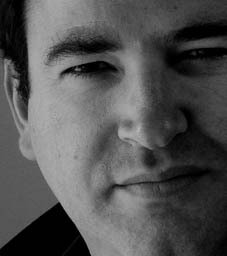
After John Psathas won best classical
album of 1999 at the New Zealand Music Awards in March, nothing
happened.
No arts writers called wanting to
profile this prolific composer, sales of the album Rhythm Spike on
the independent Rattle label didn't jump, and no critics decided to
belatedly acknowledge this exceptional album which, on initial
release, had only one print review. Even now, there have been only
two.
Certainly Rhythm Spike received good
airplay on the National and Concert programmes, says Rattle's Tim
Gummer, and he admits it is a small label which doesn't have the
means to promote its albums. But increasingly he's feeling the album
went into dead air as far as the critical community was concerned.
Out of the initial pressing of 1000, around 30 copies - in two waves,
the second after the music award - were sent to reviewers and arts
writers.
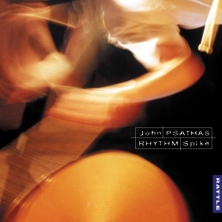 "Stickers on the album mentioning
the award now might be making a small difference," says Gummer
"but we are still selling only between 20 and 30 a month, about
the same as before."
"Stickers on the album mentioning
the award now might be making a small difference," says Gummer
"but we are still selling only between 20 and 30 a month, about
the same as before."
However, Gummer concedes that, unlike
pianist Dan Poynton whose You Hit Him He Cry Out on Rattle won best
classical album at the '98 awards, Psathas isn't a performer who can
get out and promote his work.
Psathas - aged 33, raised in Taumaranui
and of Greek heritage - is a lecturer at Victoria University's School
of Music and is this country's most internationally performed
composer. He finds the critical indifference frustrating but isn't
overly troubled by it.
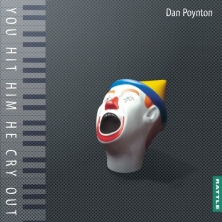 "Not really," he says,
"because I'm very ideological about what I'm doing. A big part
is staying out of the public eye so if there is interest it's because
of the music and not me, which is frustrating for people who make CDs
or publish scores and need you in the public eye.
"Not really," he says,
"because I'm very ideological about what I'm doing. A big part
is staying out of the public eye so if there is interest it's because
of the music and not me, which is frustrating for people who make CDs
or publish scores and need you in the public eye.
"We're in an interesting time
because art music is starting to be noticed by a wider audience.
Someone like Gareth Farr has had a lot to do with that. Gareth made
people aware there are living composers, but with Gareth there's the
tag of a whole other notoriety," he says, referring to Farr's
alter-ego, the drag-glam Lillith.
"If you work on those lines I'm
one of the least interesting people in terms of the media: I'm
married, got kids, a mortgage, all those boring things, and there's
not really anything to latch onto for a headline."
Yet he might have expected someone to
be interested in his movements. Right now he's in Italy as an invited
member of an international jury for a composition competition at
which one of his works will be performed.
Then he goes to Britain to meet
percussionist Evelyn Glennie, who has commissioned him to write a
concerto for percussion, piano and orchestra.
In August he's back in Italy for the
premier of the concerto he was commissioned to write for jazz
saxophonist Michael Brecker and then he goes to Greece to write.
It's an exciting four months and
unprecedented for a New Zealand composer, even for one such as
Psathas whose works have been performed in Japan, Alaska, Jakarta,
Hong Kong and Tel Aviv.
Psathas thought an equivalent in the
sports arena would be trumpeted loudly, so he approached reputable TV
documentary-makers to see if there would be any interest. Nothing
happened.
Psathas attributes his international
profile in part to his Greek heritage. It makes his music unique -
"not that it uses Greek modes but it has a kind of outgoing,
hotblooded, libido quality" - and, because of his heritage, he
has always looked beyond these shores.
That's also been necessary because
contemporary classical music requires committed performers, and
performances in a sustaining environment which this small population
can't support.
Psathas' work has been performed here -
his Te Papa fanfare opened our national museum, the Auckland
Philharmonic Orchestra and 175 East New Music Ensemble played his
work last year - but his successes have mostly been offshore and his
most visible champion is percussionist Glennie, sometimes up to half
her programme coming from Psathas.
The diversity of his music, performed
on Rhythm Spike by the NZ String Quartet, pianists Michael Houstoun
and Dan Poynton, and others, has sustained on-going interest.
Psathas did a performance degree in
piano at Victoria ("but haven't pursued it") and considers
himself "a failed percussionist" which he studied by
transcribing from rock and jazz albums. He paid his way through
university by playing jazz piano which also feeds into his autograph
style.
"Performers come off stage and
people say, 'Were you improvising that?' and the temptation is to
say, 'Yes.' But it's all written down, although it comes out of the
spark you get when good improvisers get together."
Musicians acclaim his vigorous style
for an immediacy which doesn't trivialise the art aspects.
And contemporary classical music is
bringing audiences back to the concert halls.
"Orchestras are struggling
everywhere but the smart ones - and I'm saying this because it's in
my favour to say it, obviously - have figured out that the way
forward is new music. You can't remain a museum, you can't just bring
out the historic artifacts.
"The NZSO is getting on to it now,
but the APO have always made a feature of New Zealand music and have
done well because they're not scared of it."
Glennie comes to him frequently: "And
I know she can do anything, so it's a symbiotic thing. The reason
people ask is because my music is complex and fast. It makes them
look good because it's exciting."
He notes Glennie's new CD is entirely
improvised, so he is leaving room for her to improvise passages, an
opportunity he relishes.
"The other piece I've just
finished is the concerto for Brecker who is a great improviser so it
would be dumb for me to write a whole bunch of notes for him. What's
smarter is to write an environment in which he can improvise."
These days, with so many international
and local commissions coming his way, Psathas can be selective. The
day job allows him the luxury of not grabbing everything.
"But what happens now, and I think
this is utterly fair, is Creative New Zealand look at me and say,
'This guy earns money - he's not desperate for a grant,' and they've
got 300 others who wouldn't be able to do their pieces if they didn't
get a grant. I understand that - but what it also means is I have to
stay at varsity."
Something did come from winning that award.
He has been approached by other record companies, so "the
one positive spin-off is it is easier to do the next. But Rattle made
no compromises and the album took as long as it did and is as good as
it could be."
And the award looks good on the
increasingly impressive CV he presents internationally?
"Absolutely."
For more, and more recent on John Psathas, go here.

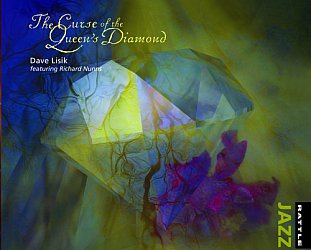



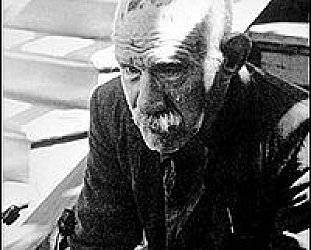
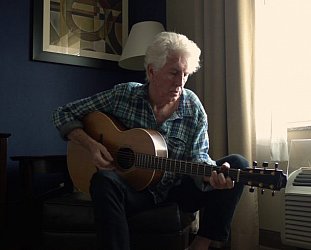
post a comment